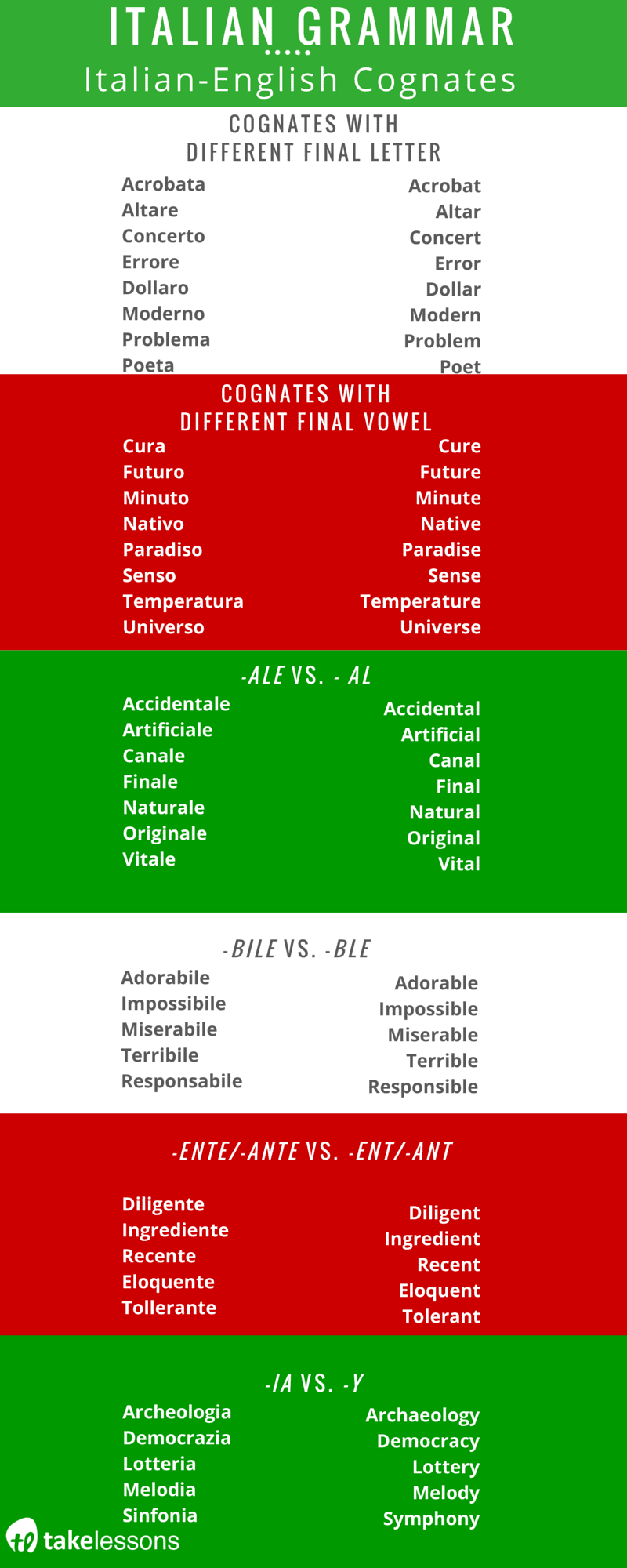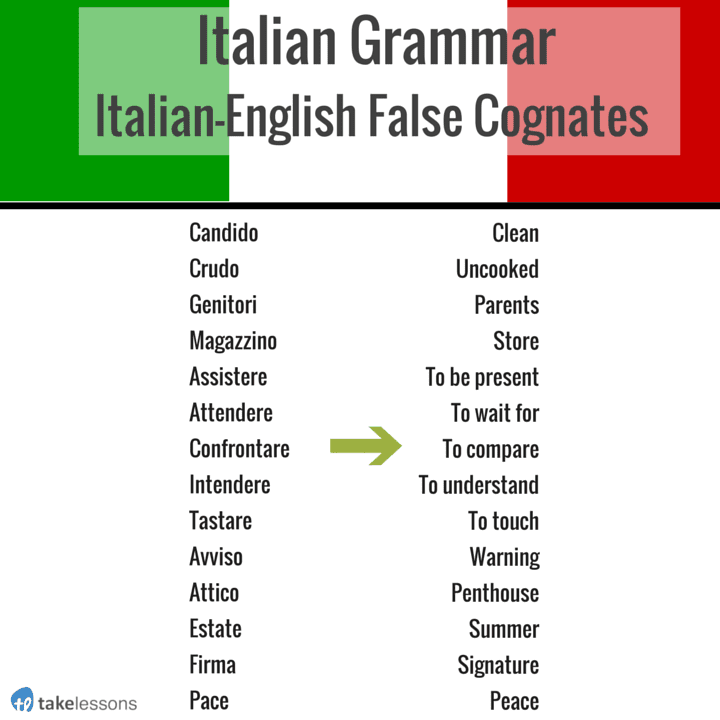Italian grammar can be a tough thing for beginners to master. Below, Italian teacher Giulio G. gives a brief lesson in recognizing Italian cognates and false cognates…
Although English and Italian belong to two different language families, they have lexis similarities. In fact, it is estimated that around 30 percent of the English vocabulary comes from Romance and Latin sources.
It’s for this exact reason why it is possible to find many cognates–or words that sound or are spelled the same or in a similar way–between English and Italian. Learning these cognates can help you improve your Italian grammar as well as expand your vocabulary.
Below is list of Italian cognates broken down into several different categories.
1. Words that are different due to the final letter
- Acrobata-Acrobat
- Altare-Altar
- Concerto-Concert
- Errore-Error
- Dollaro-Dollar
- Moderno-Modern
- Problema-Problem
- Poeta-Poet
2. Words that have a different vowel at the end
- Cura-Cure
- Futuro-Future
- Minuto-Minute
- Nativo-Native
- Paradiso-Paradise
- Senso-Sense
- Temperatura-Temperature
- Universo-Universe
3. Words that end in –ale in Italian and end in –al in English
- Accidentale-Accidental
- Artificiale-Artificial
- Canale-Canal
- Finale-Final
- Naturale-Natural
- Originale-Original
- Vitale-Vital
4. Words that end in –bile in Italian and end in –ble in English
- Adorabile-Adorable
- Impossibile-Impossible
- Miserabile-Miserable
- Terribile-Terrible
- Responsabile-Responsible
5. Words that end in –ente/-ante in Italian and end in –ent/-ant in English
- Diligente-Diligent
- Ingrediente-Ingredient
- Recente-Recent
- Eloquente-Eloquent
- Tollerante-Tolerant
6. Words that end in –ia in Italian and end in –y in English
- Archeologia-Archaeology
- Democrazia-Democracy
- Lotteria-Lottery
- Melodia-Melody
- Sinfonia-Symphony
As any Italian teacher will tell you, it’s important to be careful with cognates. Languages can sometimes be tricky and also present false cognates–words that look similar between two languages but have different meanings. Below are a list of common Italian false cognates.
- Candido-clean
- Crudo– uncooked
- Genitori-parents
- Magazzino-store
- Assistere-to be present
- Attendere-to wait for
- Confrontare– to compare
- Intendere- to understand
- Tastare– to touch
- Avviso– warning
- Attico– penthouse
- Estate-summer
- Firma-signature
- Pace-Peace
When beginning to learn Italian grammar, it’s important to familiarize yourself with these cognates and false cognates. This way, you will be able to avoid making an embarrassing mistake when speaking with a native Italian.
Unfortunately, there’s no easy way to remember Italian cognates and false cognates; rather you’re best bet is to try to memorize these words by using them as often as possible or playing Italian grammar exercises.
 Post Author: Giulio G.
Post Author: Giulio G.Giulio G. teaches in-person Italian lessons in New York City. He is originally from Florence, Italy and is currently a student at the University of Florence for Languages and Intercultural Relations. He has been teaching lessons since 2009. Learn more about Giulio here!
Photo by vic xia
Suzy S.




